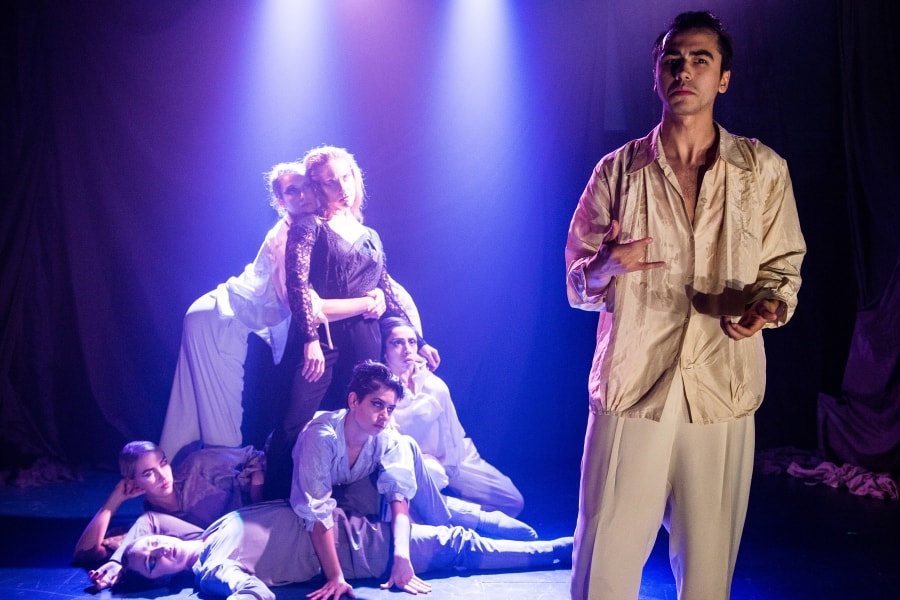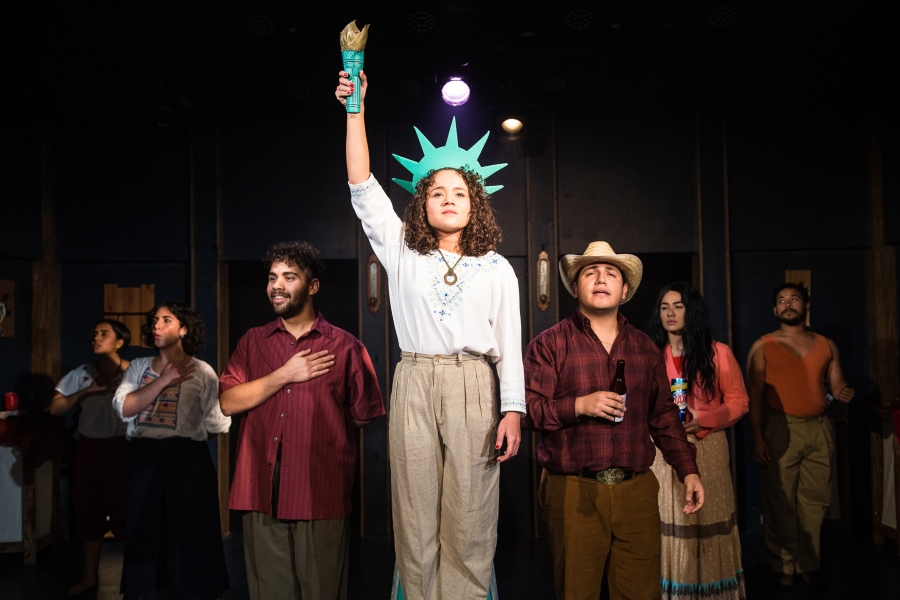The director’s path from school to the rehearsal room can be a winding, nebulous journey. And while actors and playwrights have some well established channels to develop their careers, Josh Sobel, artistic director of Haven Theatre in Chicago, saw the need for a showcase that might give directors a bit of, well, direction.
The Director’s Haven, now in its fourth year, provides early-career directors the opportunity to work with a mentor and showcase a short play at Chicago’s Den Theatre. This year’s showcase, running through Oct. 31, features works helmed by Charlotte Drover, Airos Sung-En Medill, and Dani Wieder.
“There is this hole that exists, particularly in the post-graduate moment, in terms of hands-on opportunities to share one’s vision and share one’s craft,” says Sobel.
Sobel contests the semantics around the term “early career,” noting that most opportunities to gain experience are offered to directors who already have experience. So he looks for directors who have shown a hunger in the circuit of workshops and 10-minute play festivals in Chicago. “I’m looking for voices to invest in,” he says. “Voices that feel like they have something to say, and a deep hunger to say it right now.”

The ensemble-based model for building companies, the bedrock of the storied Chicago theatre community, isn’t a great fit for every aspiring director. Self-producing or arranging coffee dates for career advice aren’t surefire ways to build a career either. The most important building block, Sobel believes, is having the opportunity to hone your directorial voice.
“Not every director wants to be a producer, nor does every director have a skill set of a producer—and that doesn’t make them any less of a director,” he says. That’s why Director’s Haven “focuses simply on the act of directing and providing the resources necessary to focus solely on that aspect, and on introducing themselves to the Chicago community.”
The directors are given space for rehearsal and performance, a full design team, a budget, and marketing support to stage a full production of a short play. The plays are presented back-to-back each night to industry professionals and other artists. But the linchpin of the experience is the mentorship program. The selected directors work one-on-one with mentors who serve as sounding boards throughout the rehearsal and production process.
“We’ve been thrilled to have people who are true icons in our community participate,” says Sobel. “Everyone from Chay Yew at Victory Gardens to Jonathan Berry at Steppenwolf, to Marti Lyons, who is just all over the country these days. We’ve been able to get these incredible people to lend their eyes and expertise to helping nurture these young voices. It’s really been inspiring to watch.”

This year’s director and mentor pairs are Charlotte Drover and Krissy Vanderwarker, Dani Wieder and dado, and Airos Sung-En Medill and Jess McLeod.
“What I wanted going into this was the chance to really understand and explore what my theatre looks like outside of school,” Airos says. “This experience really has allowed me to explore that and put my own stories at the forefront.”
Airos is directing a production of Josefina Lopez’s Simply Maria, or the American Dream, about a young woman and her family’s migration from Mexico to the United States. The play explores gender and culture norms across borders and generations.
“In finding this play and coming home to it, I am realizing how much gratitude I have for the folks who have come before me,” Airos says. “This play is a love letter to my mom and to the other women of color who have come before, folks who have been misnamed women, and for those who have yearned for the name. Its to uplift my ancestors and the folks who have really done the work. I am able—as a queer, trans, non-binary person of color—to live in Chicago and make art. That’s amazing, and I have so much gratitude.”
The play’s episodic storytelling, with a timeline that jumps among the past, present, and future, has been a challenge. Airos worked with the stage manager to learn how to effectively budget rehearsal time, and their mentor, Jess McLeod, advised them to take the process one day at a time.
“In all of my experiences with her, she very unapologetically knows what she knows,” Airos says of McLeod. “She leads with that in such a way that being around her makes me not be afraid of my own power, because she is standing in her own in such a beautiful way. When you have the confidence that you know what you’re talking about, really wonderful things can happen.”
And McLeod knows the wonderful things that can happen with mentorship. Her mentors, she says, “all really shaped the way that I practice directing and think about craft, the different parts of the process, and the way that I am able to assess my own work. Directors need to help directors, and we can all learn from each other.”
McLeod also notes the power of being able to lift up younger artists of color, and share some of her own challenges climbing the ranks.
“The beautiful and lovely and horrifying thing about directing is that it asks all the things of you,” says Airos. “I’m finding that the more fully I allow myself to grow as a person, that supports who I am as a director.”


